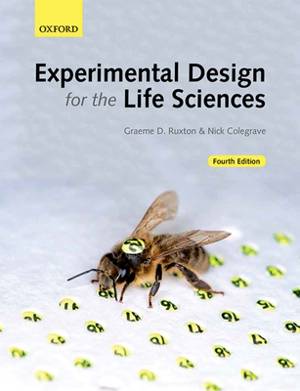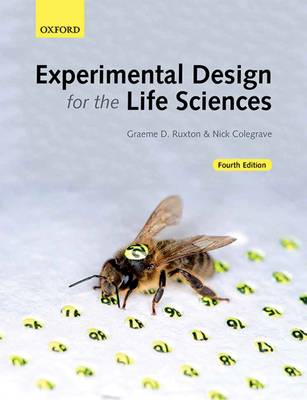
- Afhalen na 1 uur in een winkel met voorraad
- Gratis thuislevering in België vanaf € 30
- Ruim aanbod met 7 miljoen producten
- Afhalen na 1 uur in een winkel met voorraad
- Gratis thuislevering in België vanaf € 30
- Ruim aanbod met 7 miljoen producten
Zoeken
€ 100,45
+ 200 punten
Omschrijving
The careful design of experiments lies at the core of good research. Experimental Design for the Life Sciences equips you with the skills you need to effectively design experiments, making this essential aspect of the research process readily understandable. It demonstrates how good experimental design relies on clear thinking and biological understanding, not mathematical or statistical complexity. With a refreshingly approachable and articulate style, the book walks you through the considerations that go into designing an experiment in clear, practical terms. Using examples drawn from across the life sciences - from ecology, biochemistry, molecular biology, genetics, and health sciences - the authors illustrate how these concepts are applied within the broad context of real biological research. Online Resource Centre
The Online Resource centre to accompany Experimental Design for the Life Sciences features: For students:
DT Self-test questions and answers
DT Additional examples
DT Supplementary sections discuss complex concepts and statistical issues in more depth
DT Links to useful websites and free software For lecturers:
DT Suggested course structures, complete with practical exercises
DT Figures from the book, available to download
The Online Resource centre to accompany Experimental Design for the Life Sciences features: For students:
DT Self-test questions and answers
DT Additional examples
DT Supplementary sections discuss complex concepts and statistical issues in more depth
DT Links to useful websites and free software For lecturers:
DT Suggested course structures, complete with practical exercises
DT Figures from the book, available to download
Specificaties
Betrokkenen
- Auteur(s):
- Uitgeverij:
Inhoud
- Aantal bladzijden:
- 224
- Taal:
- Engels
Eigenschappen
- Productcode (EAN):
- 9780198717355
- Verschijningsdatum:
- 15/10/2017
- Uitvoering:
- Paperback
- Formaat:
- Trade paperback (VS)
- Afmetingen:
- 188 mm x 244 mm
- Gewicht:
- 385 g

Alleen bij Standaard Boekhandel
+ 200 punten op je klantenkaart van Standaard Boekhandel
Beoordelingen
We publiceren alleen reviews die voldoen aan de voorwaarden voor reviews. Bekijk onze voorwaarden voor reviews.











